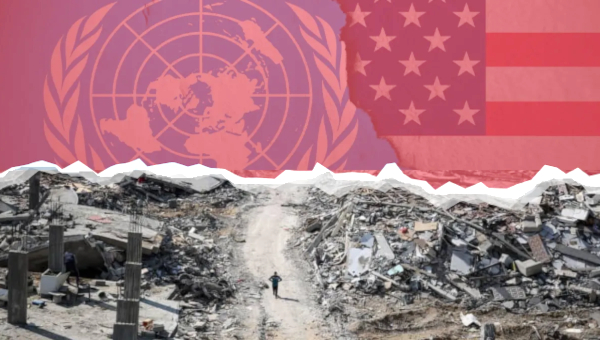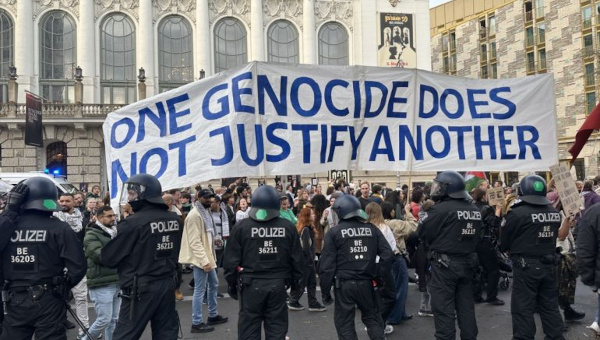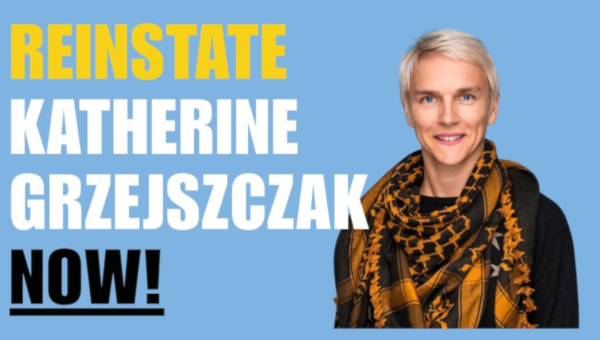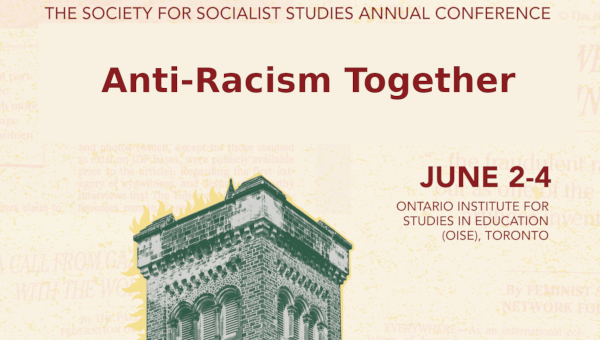Statements on Abduction of Mahmoud Khalil
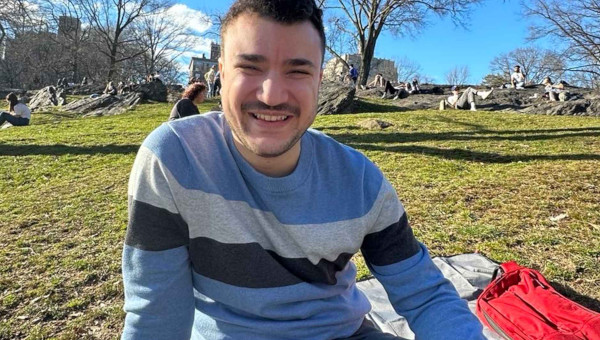
“My arrest was a direct consequence of exercising my right to free speech as I advocated for a free Palestine and an end to the genocide in Gaza, which resumed in full force Monday night. With January’s ceasefire now broken, parents in Gaza are once again cradling too-small shrouds, and families are forced to weigh starvation and displacement against bombs. It is our moral imperative to persist in the struggle for their complete freedom.” — Mahmoud Khalil from Louisiana detention facility, March 2025.
Attacks on Campus Organizing for Palestine
Faculty for Palestine condemns in the strongest terms the abduction and attempted deportation of leading Columbia student organizer, Mahmoud Khalil. We stand in solidarity with all other students, staff, faculty, and activists facing intimidation, threats, legal consequences, job loss, and deportation for taking principled stands against the genocide of Palestinians and for advocating for Palestinian liberation. This includes Badar Khan Suri, Ranjani Srinivasan, Rumeysa Ozturk, and countless others. We think of Cornell student Momodou Taal, currently threatened with deportation for his organizing: “This fight is bigger than me, and we can’t afford to lose it.”
As the Middle East Studies Association Board recently noted: “The current campaign targeting universities is an extension of earlier right-wing efforts to attack and defund teaching about race, gender, and sexuality at the state level, but it is a significant escalation…Palestine-related scholarship and advocacy have now become focal points of a frontal assault on universities as centers of critical thinking and knowledge production in a battle to destroy the autonomy of institutions of higher education in the US.”
The Palestinian solidarity movement is a principled political stance rooted in human rights, international law, and aspirations for Palestinian freedom, yet it is increasingly being spuriously framed as a national security threat, or as hate speech. These measures also echo historical patterns of political repression including McCarthy-era enemy lists targeting leftist academics, COINTELPRO efforts to destroy American Indian Movement, Black liberation, and anti-war movements, and the long history of political deportations. In the context of Trump’s promises of “mass deportations” of immigrants, the use of deportation threats to destroy powerful and inspiring student activism should deeply concern us all.
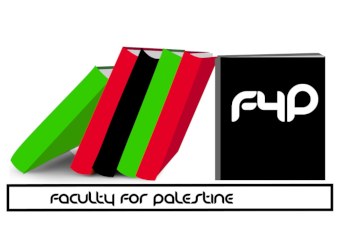
As academics, we are particularly concerned about the role of university administrations in enabling, rather than resisting, these forms of repression, including the refusal to protect racialized and non-citizen people who have been among the first to be targeted by state repression. The recent actions at Columbia University in particular are not isolated incidents but part of a broader pattern, elements of which we have seen in Canada.
We call on university administrations to immediately:
- Drop all university disciplinary processes including suspensions, expulsions, and degree revocations directed against students for their political activism, processes that made students such as Mahmoud Khalil and Momodou Taal vulnerable to state repression.
- End policies directed at restricting student and faculty protests against the genocide in Gaza and political speech in favour of Palestinian freedom.
- Keep ICE off campus. Stop cooperating with government agencies including Immigration and Customs Enforcement (ICE) that are targeting Palestinian and non-citizen, often racialized, students and faculty for their principled opposition to the genocide in Gaza and Palestinian unfreedom. Become sanctuary universities for all regardless of immigration status.
- Acknowledge Anti-Palestinian racism. Stop silencing and policing Palestinian student, staff and faculty perspectives, scholarly activities, and political expression.
- Protect students, staff and faculty from doxxing, surveillance, and harassment, including “deportation lists” prepared by right-wing Zionist groups designed to undermine academic careers and make individuals targets for terrifying government repression including detention and deportation. Provide legal and financial support to those facing harassment, criminalization, or deportation.
- Reject external and political interference. Uphold free speech and expression, academic freedom and collegial governance. Stop sacrificing university community members to an authoritarian government out to destroy higher education. Become sanctuaries for those experiencing political repression.
- Reject the International Holocaust Remembrance Alliance (IHRA) definition of anti-Semitism and the instrumentalization of anti-Semitism to shut down Palestine organizing. Stop conflating anti-Zionism with anti-Semitism. Fight anti-Semitism and racism with a framework of collective liberation.
- Disclose, divest and cut ties with Israeli institutions. Heed the Palestinian civil society call for academic boycott of complicit Israeli institutions.
We will continue to advocate for the rights of students, staff, faculty, and scholars to engage in critical inquiry and political activism without fear of reprisal. The struggle for justice and freedom, including in Palestine, is inseparable from the struggle to maintain the university as a space for dissent, debate, and transformative scholarship. •
Jewish Faculty Network: Statement of Solidarity with US Academics
The abduction and attempted deportation of Mahmoud Khalil, coupled with ongoing threats to university funding and crackdowns on activists, academics, and the imprisonment and attempted deportation of those without US citizenship, has stirred collective horror and rage among members of the Jewish Faculty Network, whose membership includes more than 200 faculty members at universities across Canada.
Our anger is not new, but it has reached a boiling point, following a year and a half of pro-Israel lobby groups audaciously claiming to speak on our behalf in support of the genocide in Gaza. Worse, they claim objections to Israel’s actions since the horrific attacks of October 7th, 2023, are antisemitic. Even when human rights lawyers, international law experts and those expressing solidarity with Palestinian women, children and civilians object to the IDF’s brutal massacres of civilians, we are told that they too are modern day antisemites. Especially when Jewish intellectuals express solidarity with Palestinian suffering, we are called ‘self-hating’ or ‘antisemites’ ourselves. This absurdity must stop. Real harm is caused by diluting the definition of antisemitism and weaponizing antisemitism in response to political dissent.
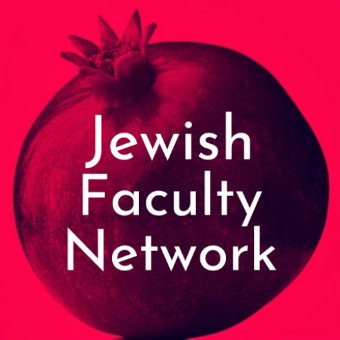
As Jewish faculty at universities and colleges across Canada, we extend solidarity to our colleagues in the United States who face this wave of xenophobic “cleansing.” We view with alarm the Trump administration’s renewed efforts to purge US public and private universities of students and staff whose speech and research it finds threatening to white and Christian supremacy. Among these efforts, we note in particular the scapegoating of gender and sexuality studies, social studies, humanities research on colonialism, racism, capitalism, and imperialism, and scientific research into climate change, social determinants of health, and public health. Attacks on universities including scholasticide in Gaza and Donald Trump’s mass funding cuts to research and programs are different manifestations of the same thing: attacks on academic freedom and democratic ideals.
We watch in horror the capitulation of university leadership over the past year and a half to the federal scrutiny and defamation of Palestinian solidarity encampments on campuses like Columbia University. The seeds of the current wave of repression have been sown by the refusal of campus administrations to defend academic freedom, creating an “exception” on Palestine that has become the rule, and which will expand endlessly and voraciously until we stop it. We fear that if we do not speak out now, it will be too late, and the reality will become a matter for historians.
We understand such large-scale attacks on higher education to be characteristic of the early stages of totalitarian regimes. When effective, the destabilization of universities separates, atomizes, and isolates researchers, delegitimizes inquiry, and prevents people–especially the young–from assembling freely and sharing ideas. When staff are fired and students expelled, they often also lose their status, homes, and means of support. This makes them more vulnerable to the arrests and deportations already promised by the Trump regime. We see a direct relationship between, for example, increasing repression of speech at Columbia University, the shameful and early capitulation of Columbia University President at the Senate hearing, and the flagrantly unlawful detention of more and more students and alumni.
For Jewish faculty, in particular, we are saddened and horrified to see such acts justified in the name of protecting Jewish students with the support of right-wing groups such as Betar. We are at a turning point in history. This is a time when overt Nazi symbolism is being legitimized, as we have seen with the Nazi salute flung into the air by a multibillionaire unelected bureaucrat, as well as by another prominent advisor and ideologue of the Trump regime.
And we see growing ranks of Christian Zionists advance calls for a cruel and ruthless apocalypse centred on Palestine. Nothing about the current administration’s attacks on universities, nor about the arrest and targeting of activists against the genocide in Gaza, makes us safe. While it may be convenient for extreme nationalists to align for the moment with the far right administration in the US and with Christian Zionists in general, we believe that doing so is both unprincipled and a catastrophic misjudgment. We believe that Jewish people should stand shoulder-to-shoulder with anti-racist, anti-colonial and human rights advocates, with Palestinians, and with those being targeted – not Trump, Netanyahu or AIPAC.
We believe that the Trump administration’s eagerness to expel, fire, and deport protestors and dissenters, so reminiscent of past state persecutions of Jewish dissent, has nothing to do with Jewish safety but rather is consonant with the antisemitic and ethnonationalist aims of his administration. We condemn the association of Jewish safety with state violence and repression, which can only divide us from our allies, materially harm Jewish students, and lead to more antisemitism. This is a time when Jewish people should lock arms with others under fire, as our Jewish heritage of solidarity has taught us. We are not safe until everyone is safe. We urge all university administrators and state and local officials to resist unconstitutional directives and to safeguard academic freedom and all who benefit from it.
We stand in solidarity with colleagues, staff, and students whose academic freedom, free speech, and liberty are under attack. We call on all universities to resist the waves of repression facing academia and society writ large. As the landscape shifts rapidly, we are horrified by these initial instances of violence and fear that they will continue to escalate and we remain steadfast in our resolve to do everything we can to stop it and to lock arms with all those impacted. •
Capitulation or Complicity? Universities and the Trump Administration
On March 7th the Trump administration announced the immediate cancellation of $400-million in government grants and contracts to Columbia University. Less than a week later, his administration followed up with a letter to Columbia’s interim president, Katrina Armstrong, outlining the steps the university would have to take before negotiations to restore funding could even begin.
Although largely without precedent, Trump’s demands are entirely in line with an evolving authoritarianism that seeks to destroy possible sites of political opposition. The demands included suspending or expelling some of those who participated in pro-Palestinian protests; centralizing disciplinary power within the hands of the university president; banning mask wearing on campus; increasing the numbers and powers of campus police; and putting the Middle East, South Asian and African Studies department under “academic receivership” (a rare move that places a department under external/administrative control, typically because it has become dysfunctional, but in this case because it was not sufficiently pro-Israel).
On March 21st, Columbia’s interim president agreed to the demands. Columbia would not put up a fight. Armstrong’s actions were widely condemned by advocates of higher education, academic freedom, and free speech – most of whom seemed genuinely surprised, even shocked, by Columbia’s decision to simply accept Trump’s terms. On March 28th Armstrong lost her job.
It is tempting, as most commentators have, to understand the quick, total, and passive submission of Columbia and other university administrations to Trump’s assault through the lens of “capitulation,” “caving,” or “appeasement.” I get the impulse. Surely liberal institutions of higher learning, with time-honored commitments to free speech and academic freedom, would not possibly agree to Trump’s outrageous demands unless they had a financial gun pointed directly at them? Campus leaders must – so the logic goes – be churning on the inside, desperately wanting to fight back even as they reluctantly recognize that capitulation is the only alternative. Fighting back poses too great a risk.
Capitulation as an explanation, however, is far too generous and rests on the false premise that – when faced with a profound threat to democracy – core institutions such as universities have, currently are, or will fight to protect our basic political norms.
The question we should be asking ourselves – especially those of us who live in academia and should know better – is why would we expect universities, or more accurately the administrators who run them, to protect free speech, academic freedom, and dissent at all, especially during moments of crisis when doing so entails taking real risks? University administrations, from the 1960s through the present, have a very thin track record of doing so. The reality is that most have worked overtime, often at the behest of the trustees that control them, to limit or crush our freedoms with such consistency, and over such a long period of time, that it is baffling that anyone would expect anything different as we race towards authoritarianism.
Complicity gets us far closer to a useful explanation of recent actions by campus leaders than capitulation. We need only listen to Columbia’s interim president. In explaining the university’s acceptance of the Trump administration’s demands for restoring the flow of federal dollars, Armstrong noted in an open letter to the campus community that the university’s actions were in line with the path it had been following in the past year and were “guided by our values, putting academic freedom, free expression, open inquiry, and respect for all at the fore of every decision we make.” Armstrong is correct when she suggests that Trump’s demands coincide with university values as defined by top campus leaders. It’s just that those values do not include, and never really did, academic freedom and free expression.
Understood this way, it seems quite likely that Columbia’s leaders accepted Trump’s demands not so much because they were forced to (capitulate), or because they saw fighting as either futile or potentially disastrous, but because they welcomed the opportunity and political cover that Trump’s order provided – to get rid of “unruly” students, increase the university’s capacity to limit protest and discipline students, staff, and faculty, and (bonus!) gain control over a department that by its very subject matter might prove troublesome. That’s complicity, not capitulation. It’s also right in line with what we have seen from university administrations, including Columbia’s, in the recent and not so recent past. Indeed, the current era of complicity started under Biden with the draconian response to pro-Palestine protests from universities throughout the country in 2024 (and of course has a much longer history dating at least to the 1950s).
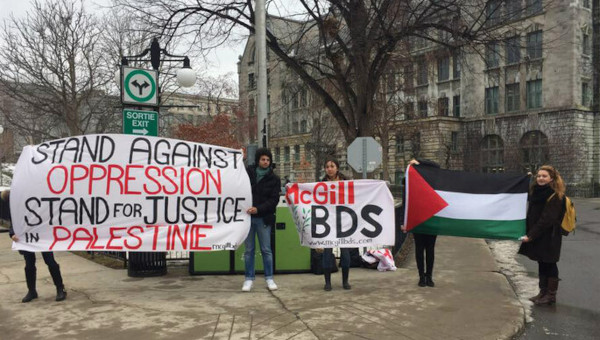
The speed with which university administrations have abandoned DEI policies and practices must be seen in this light as well. The administrative commitment to very limited sets of DEI policies was always paper thin, or about as deep as their commitment to academic freedom. It’s more a marketing ploy and opportunity for virtue signaling than any sort of real political commitment. The fact that many universities scrubbed websites and academic units, in some cases overnight, of almost any mention of DEI when the political winds shifted is hardly surprising.
This is not to say that most campus leaders like or fully embrace Trump’s gestapo-like tactics (though some seem to be getting quite comfortable with it). But it is also the case – especially after the 2024 campus protests around Palestine – that most were on board with some sort of “course correction,” not unlike the position one finds on the opinion pages of the New York Times, which essentially argues that student protests went too far, faculty are too liberal, universities need to rein it in, and Trump has a point (for a good example of this “commonsense” drivel, see Greg Weiner’s piece).
To be sure, we should not downplay the distinction between Trump’s authoritarianism, which tends to see those on college campuses as dangerous radicals who need to be removed, from the liberal “course correction” that pushes reforms to “take politics out” of higher education. And yet, as soon as one starts to accept Trump’s fascist tactics for getting there, which increasingly embraces a grab-them-off-the-streets approach reminiscent of Central America paramilitaries in the 1980s, the distinction probably feels a bit like splitting hairs to those on the wrong end of it. Complicity, not capitulation.
The silver lining, if there is one, is that although highly paid administrators officially speak for universities, and have considerable power over university policies, they are not “universities” any more than are the boards of trustees that control them. Katrina Armstrong, or whoever replaces her, is not Columbia University. The students, faculty, and staff who make up the institution, as well as the communities they serve, are “the university.”
Put another way, to suggest that there is no reason to expect university administrators to be natural defenders of free speech and political dissent, and that history tells us that many of them will in fact be complicit with Trump’s brand of fascism, is not to say that we should not try to hold them accountable or that the fight is over and universities have been politically neutered. It is to say that we – “the university” – have to continue the fight that so many of us are already engaged in. Trump is coming for us because so much of the best that university faculty, staff, and students represent – science, education, reason, knowledge, and informed political engagement – poses a real threat to his project. Campus leaders may opt for complicity. Let’s make sure we are neither complicit nor capitulate. •


